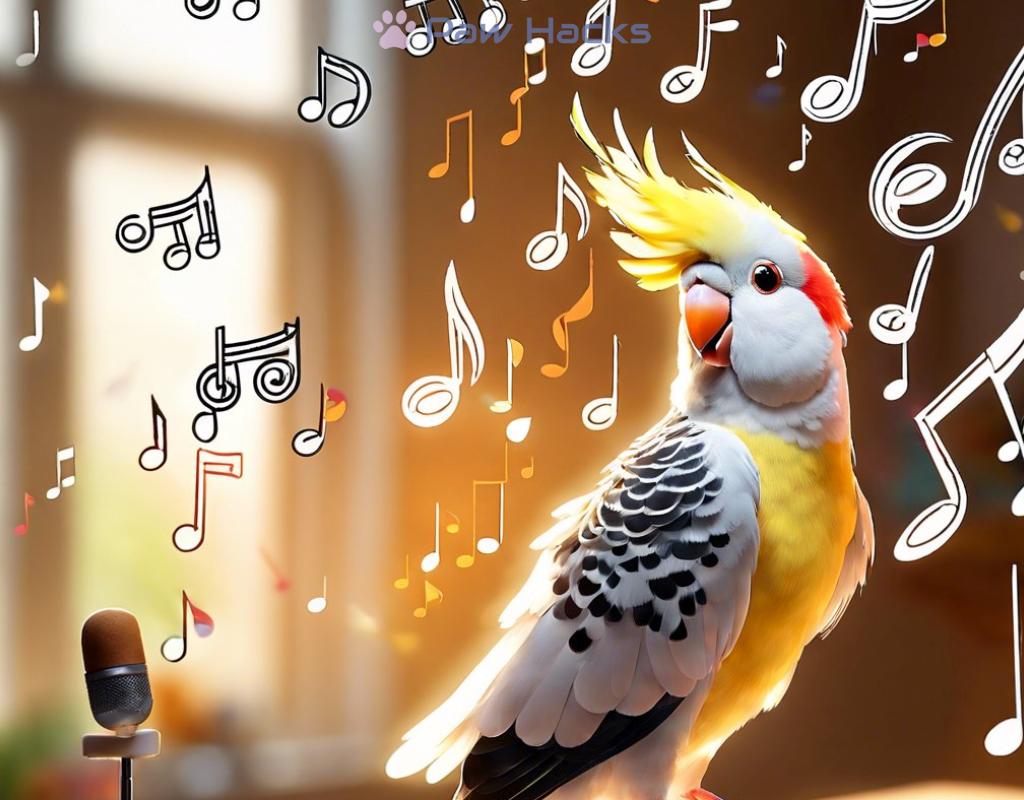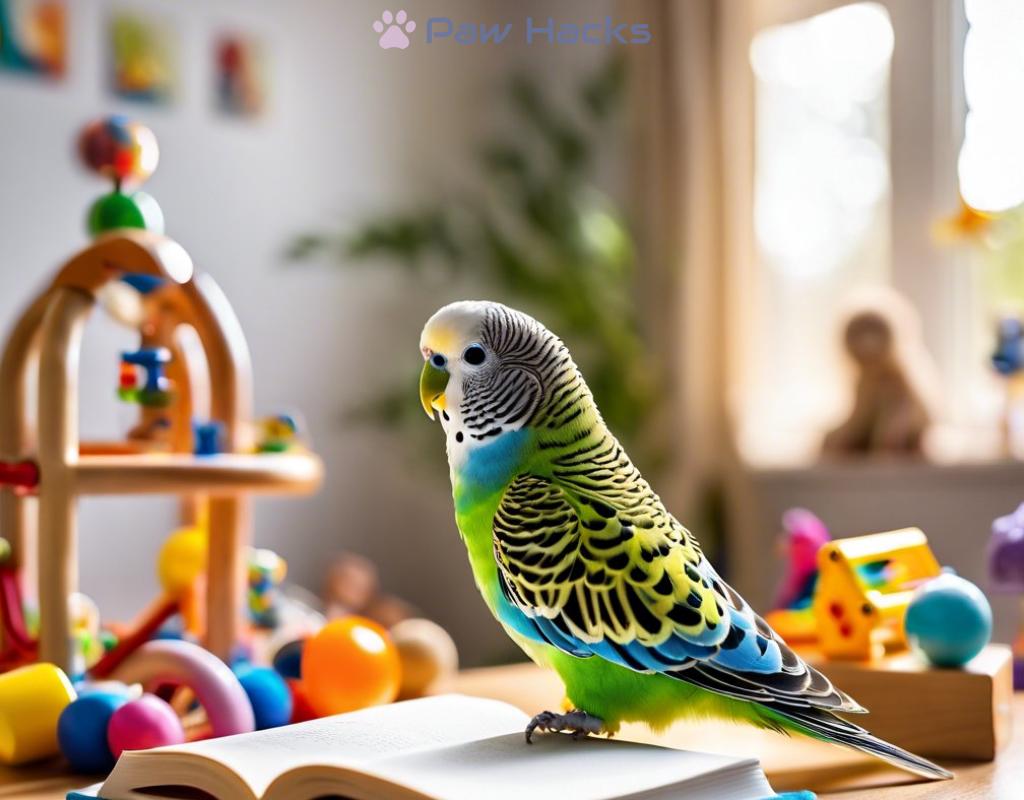Training Cockatiels to Whistle Tunes
Choosing the Right Tunes for Your Cockatiel

Picking Melodies That Resonate
When it comes to training your cockatiel to whistle tunes, the choice of melody can significantly impact their motivation and success. Not all tunes are created equal, and some may be more suitable for your feathered friend than others. Here’s a guide to help you select the perfect songs that will make your cockatiel’s training both enjoyable and effective.
Factors to Consider When Selecting Tunes
Choosing the right song isn’t just about personal preference; there are several factors that can influence how quickly and effectively your cockatiel learns to whistle. Below are key elements to keep in mind:
- Melody Simplicity: Opt for simple, catchy tunes that your cockatiel can easily mimic. Complex melodies may overwhelm them.
- Repetition: Songs with repetitive phrases or hooks are easier for cockatiels to learn. They thrive on predictability.
- Length of the Tune: Shorter tunes are generally easier to teach. Aim for melodies that last about 10-15 seconds.
- Emotional Connection: Choose songs that evoke positive feelings for both you and your pet. Happy tunes can lead to happy training sessions.
Recommended Tunes for Cockatiels
To give you a head start, here’s a curated list of popular tunes that cockatiels often respond well to:
| Song Title | Artist | Why It Works |
|---|---|---|
| “Twinkle, Twinkle, Little Star” | Traditional | Simple melody with repetitive structure. |
| “Happy Birthday” | Traditional | Short and celebrates a fun occasion. |
| “Mary Had a Little Lamb” | Traditional | Easy to learn with a cheerful tone. |
| “Let It Be” | The Beatles | Well-known and emotionally uplifting. |
By considering these factors and selecting one or more of the recommended tunes, you can create a more engaging and successful training experience for your cockatiel. Happy whistling!
Step-by-Step Guide to Teaching Whistles
Teaching your cockatiel to whistle can be a rewarding and enjoyable experience, not just for your feathered companion but for you as well. With the right approach, patience, and a few techniques, you can transform your cockatiel into a delightful whistling companion. Here’s a straightforward guide to help you navigate the process of training your pet to whistle.
Establishing a Bond Through Repetition
Before diving into teaching specific tunes, it’s crucial to build a rapport with your cockatiel. Spending quality time together can enhance your bond and make your bird more receptive to learning. Once you feel comfortable with each other, begin using the selected melodies for training. Play the chosen tunes regularly, allowing your cockatiel to become familiar with the sounds. Repetition is key; the more they hear the melody, the more likely they are to mimic it.
Positive Reinforcement: The Heart of Learning
As your cockatiel starts to mimic sounds or even attempts to whistle, it’s important to reinforce these behaviors. Utilize positive reinforcement techniques, such as offering treats or verbal praise, to encourage your pet. This method not only motivates your cockatiel to continue trying but also creates a positive learning environment. Celebrate small victories—even a simple chirp in the right direction deserves recognition! The combination of familiarity with the tune and positive reinforcement will create a solid foundation for your cockatiel’s whistling abilities.
Remember, training is not a race. Allow your cockatiel the time needed to learn at their own pace. By following these steps and maintaining a loving and supportive atmosphere, you’ll be well on your way to having a whistling companion that brings joy to your home.
Creating a Positive Environment for Learning
When it comes to teaching your cockatiel to whistle, the atmosphere in which you conduct these sessions plays a pivotal role. A positive environment can enhance your bird’s learning experience, making it enjoyable for both you and your feathered friend. By fostering a supportive atmosphere, you not only encourage your cockatiel to mimic tunes but also strengthen the bond you share.
Comfort and Safety are essential components of a productive learning environment. Ensure that your training area is free from distractions and potential stressors. A calm, quiet space allows your cockatiel to focus on the melodies without being overwhelmed by noise or sudden movements. Consider using a cozy perch or a favorite toy to create a sense of security during training sessions. The more comfortable your cockatiel feels, the more likely they are to engage in the learning process.
Additionally, timing and consistency are crucial. Schedule training sessions when your cockatiel is naturally active and alert. Early mornings or late afternoons are often ideal for engaging them. Consistency in your training routine not only helps establish a sense of stability but also makes it easier for your cockatiel to anticipate and participate in the learning activity. When your bird knows what to expect, they are more inclined to join in with enthusiasm.
Finally, emphasizing fun can transform your training sessions into delightful experiences. Incorporate play and interaction into your lessons. Use joy-filled tones and expressions when your cockatiel successfully mimics a sound or attempts to whistle a note. Celebrating their efforts with enthusiasm can motivate them to keep trying. Remember, training should never feel like a chore; instead, it should be a joyful exploration of sounds and tunes that you both enjoy.
Tips for Reinforcing Whistle Training
Training your cockatiel to whistle is not just about teaching them melodies; it’s also about creating a nurturing environment where learning flourishes. As you embark on this delightful journey together, the methods you employ to reinforce their training play a crucial role in their success. Here are some effective tips to ensure your feathered friend remains motivated and engaged throughout the whistle training process.
Utilizing Varied Rewards
One of the most effective ways to encourage your cockatiel during training is through a system of rewards. Variety is key—mix up the types of rewards you offer to keep your bird intrigued. Treats such as seeds, fresh fruits, or even their favorite toys can serve as excellent motivators. This not only keeps your cockatiel eager for the next training session but also transforms each lesson into an exciting adventure. Remember, the goal is to create a positive association with the act of whistling, and varied rewards can reinforce that connection.
Timing Your Reinforcements
Another important aspect of effective reinforcement is timing. Immediate feedback is vital when your cockatiel successfully mimics a tune or even makes an effort to whistle. Providing a treat or verbal praise right after their attempt helps them associate the action with positive outcomes. Proper timing ensures that your bird clearly understands what behavior is being rewarded, strengthening their motivation to continue learning. This immediate reinforcement creates a cycle of encouragement that can lead to rapid progress.
Staying Patient and Positive
Patience is perhaps the most essential virtue in whistle training. Just like humans, cockatiels have their own learning curves, and some may take longer to pick up on tunes than others. Emphasize a positive atmosphere during each session. Celebrate small milestones, such as a sweet chirp or a slight whistle, to maintain enthusiasm. Your cockatiel thrives on your energy; if they sense your excitement, they will be more inclined to engage. Remember, the journey of training should be a joyful experience for both you and your feathered companion, so maintain a calm and encouraging demeanor throughout.
Common Challenges and Solutions in Whistle Training
Understanding the Hurdles in Whistle Training
Training your cockatiel to whistle can be a delightful journey, but it’s not without its hurdles. Every bird is unique, and understanding the common challenges you might face is essential for a successful training experience. By being aware of these potential pitfalls, you can implement effective strategies to overcome them and ensure your feathered friend enjoys the learning process as much as you do.
Inconsistent Whistling Attempts
One of the most common challenges is when your cockatiel shows inconsistency in whistling attempts. One day they might mimic tunes perfectly, and the next day they seem disinterested. This inconsistency can be frustrating, but it’s important to remember that birds, like humans, have good and bad days. Factors such as mood, health, and environmental distractions can all play a role.
Solution: To address this issue, ensure you are maintaining a consistent training routine. Schedule short, engaging sessions at the same time each day to help your cockatiel anticipate and prepare for learning. Additionally, keep an eye on their physical and emotional well-being; a happy, healthy bird is more likely to engage in whistling.
Fear of New Sounds
Another challenge that may arise is your cockatiel’s fear of unfamiliar sounds. If they are startled or anxious, they may hesitate to try whistling. This hesitation can stifle the learning process and hinder their ability to mimic tunes.
Solution: Create a positive and secure environment during training. Introduce new sounds gradually and pair them with your familiar melodies to help your cockatiel feel more comfortable. Use soothing tones and gentle movements to reassure them. Over time, this familiarity will help reduce their fear and encourage them to explore new sounds.
Tips for Overcoming Training Challenges
Here’s a concise list of strategies to help you tackle common training challenges effectively:
- Establish a Routine: Consistency in training times can help your cockatiel know when to expect lessons.
- Monitor Health: Regularly check your bird for signs of stress or illness, as these can affect their willingness to learn.
- Gradual Introduction: Introduce new sounds slowly, allowing your cockatiel to acclimate before attempting to whistle.
- Positive Reinforcement: Celebrate small successes with treats or praise to keep your cockatiel motivated.
- Patience is Key: Understand that learning takes time; be patient and maintain a positive attitude.
By recognizing these challenges and implementing the suggested solutions, you can foster an encouraging environment that promotes your cockatiel’s growth as a whistling companion. Remember, each bird is unique, and with persistence and love, you will witness their progress over time.
Share this content:



